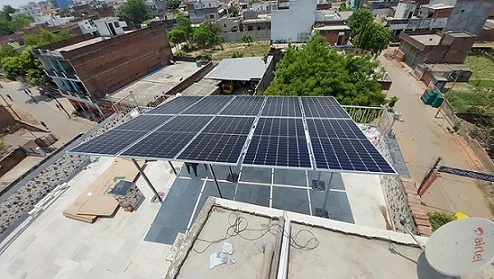Adding solar panels to your home can increase its value, but the amount of the increase can vary depending on several factors, including the size and quality of the solar panel system, the location of your home, and the local real estate market.
According to a study conducted by the Lawrence Berkeley National Laboratory, the average home with solar panels installed in California sells for approximately $15,000 more than a comparable home without solar panels. However, the increase in value may be lower in other parts of the country.
Another study by Zillow found that homes with solar panels sold for 4.1% more on average than homes without solar panels across the US. However, this study found that the increase in value was lower in certain states where energy costs were already relatively low.
It's important to note that while adding solar panels may increase your home's value, it's not always a guaranteed return on investment. The cost of installing solar panels can vary widely depending on the size of the system and other factors, and the savings on energy bills may not always offset the initial investment.
Ultimately, the decision to add solar panels to your home should be based on factors beyond just potential increases in home value, such as your energy needs and the environmental impact of using renewable energy sources.
Are solar panels worth the investment?
Whether solar panels are worth the investment depends on several factors, including the cost of electricity in your area, the cost of installing solar panels, the amount of sunlight your location receives, and the incentives and tax credits available in your area.
In general, solar panels can be a good investment if you live in an area with high electricity costs and receive a significant amount of sunlight throughout the year. Solar panels can also provide a long-term return on investment by reducing or eliminating your electricity bills, as well as potentially increasing the value of your home.
However, it's important to consider the upfront cost of installing solar panels, which can vary widely depending on the size and quality of the system, as well as other factors like installation costs and permits. In some cases, it may take several years for the savings on electricity bills to offset the initial investment.
SEE ALSO: Inverter Battery for Home
Additionally, incentives and tax credits available in your area can significantly impact the cost-effectiveness of solar panels. For example, some states and municipalities offer rebates or other financial incentives for installing solar panels, and the federal government offers a tax credit for a portion of the cost of installing a solar panel system.
Overall, whether solar panels are worth the investment depends on your specific circumstances. It's important to do your research, consult with a reputable solar panel installer, and carefully consider the costs and potential benefits before making a decision.
Conclusion
In conclusion, the decision to invest in solar panels for your home should be based on a variety of factors, including the cost of electricity in your area, the cost of installing solar panels, the amount of sunlight your location receives, and the incentives and tax credits available in your area. While solar panels can potentially increase the value of your home and provide a long-term return on investment by reducing or eliminating your electricity bills, it's important to carefully consider the upfront costs and potential savings before making a decision. It's also important to consult with a reputable solar panel installer and do thorough research before making a decision.


